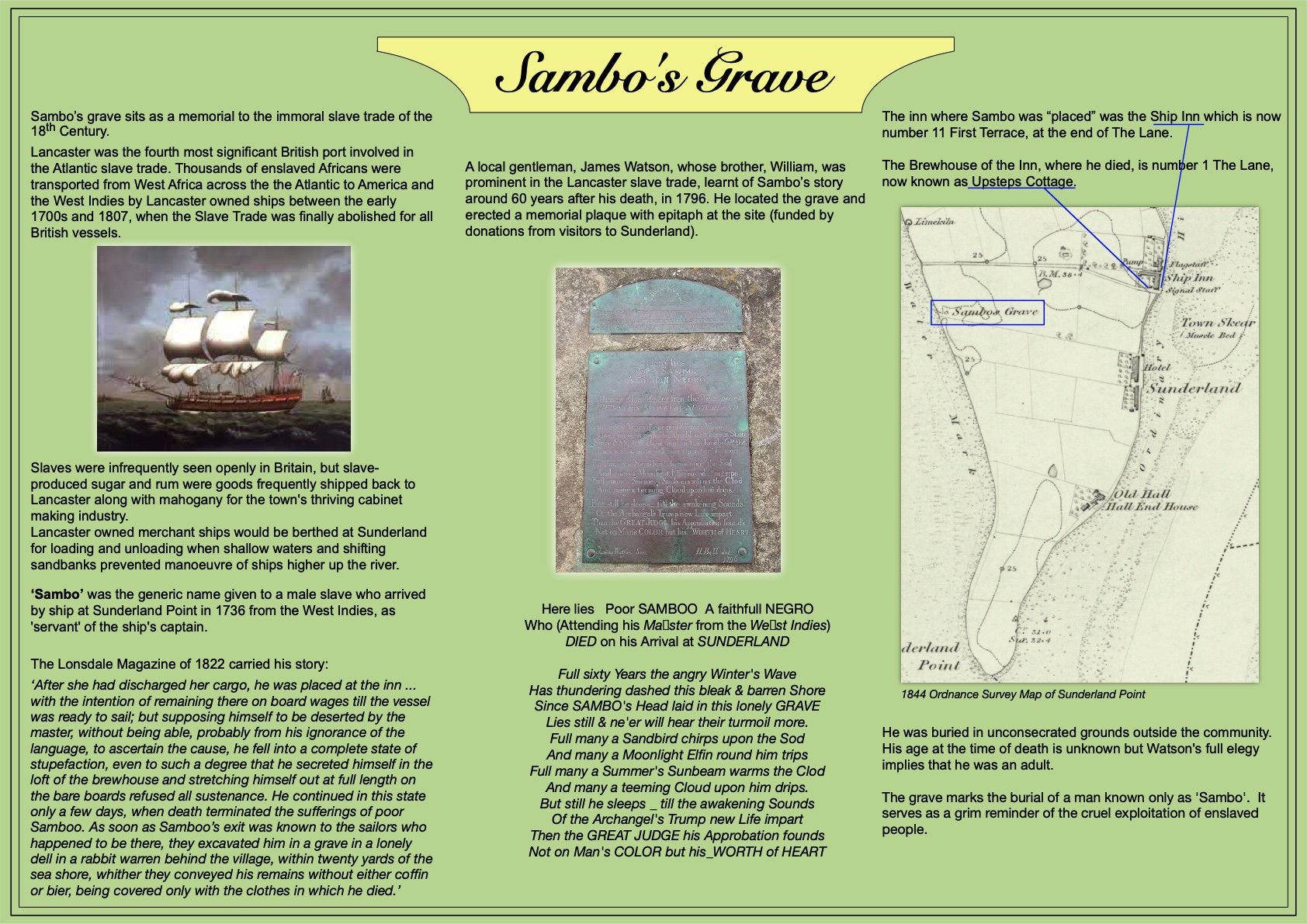
Sambo’s Grave
The traditional story says that In 1736 or thereabouts, a trading ship from the West Indies arrived at Sunderland Point; on board ship was a young man of African origin, a servant to the captain, perhaps a cabin boy. The captain, on leaving for business in Lancaster, installed the boy at the Ship Inn (now number 11).
The boy, misunderstanding why he had been left alone, became extremely anxious, refused to eat, or drink and quickly became very ill. He was moved into the adjacent brewhouse (now Upsteps cottage) where he died hiding in the rafters.
It is also supposed he probably contracted a severe illness in the British climate.
The Grave.
As it was assumed he had not been baptised and could not be buried in consecrated ground, he was taken by sailors and buried without a coffin in the corner of a field on the West Shore, facing the general direction of the West Indies.
The inscribed brass plate and Epitaph
Sixty years later in 1796, the grave was shown by the innkeeper of the Ship Inn to the Rev. James Watson the retired headmaster at Lancaster grammar school and one time Chaplin to Lancaster Castle prison.
Much taken with the story, he organised a collection from visitors to put in place the plain stone slab and brass inscribed plate. Almost certainly inspired by Greys ‘Elegy in a country Churchyard ‘(1751) and the poems of William Blake, Watson wrote a lengthy Elegy with Epitaph to Sambo.
The poem is clearly influenced by the hardening attitudes against slavery which is reflected in the Epitaph inscribed on the plate.
“Full many a Sand-bird chirps upon the Sod
And many a moonlight Elfin round him trips
Full many a Summer’s Sunbeam warms the Clod
And many a teeming cloud upon him drips.
But still he sleeps -- till the awakening Sounds
Of the Archangel’s Trump new life impart
Then the GREAT JUDGE his approbation founds
Not on man’s COLOR but his worth of heart”
The clear and unmistakable sentiment of the last two sentences reverberates through the passage of time and can be heard in Martin Luther King’s famous sentence in 1963 -
‘I have a dream that my four little children will one day live in a nation where they will not be judged by the color of their skin but by the content of their character.’
Present day…
The word Sambo is today a derogatory label and is used only with great reservation. The grave has been known by this name for almost 300 years and is found in the many histories and maps of Sunderland Point.
The grave attracts many visitors to this hauntingly beautiful and lonely place. To some it is a place of pilgrimage. Flowers and painted stones with messages are regularly left at the site.
Copy of the information board composed by residents and placed at the grave site



